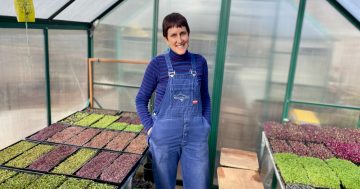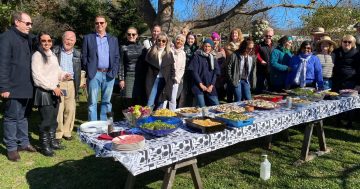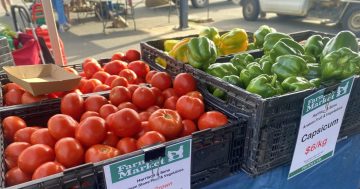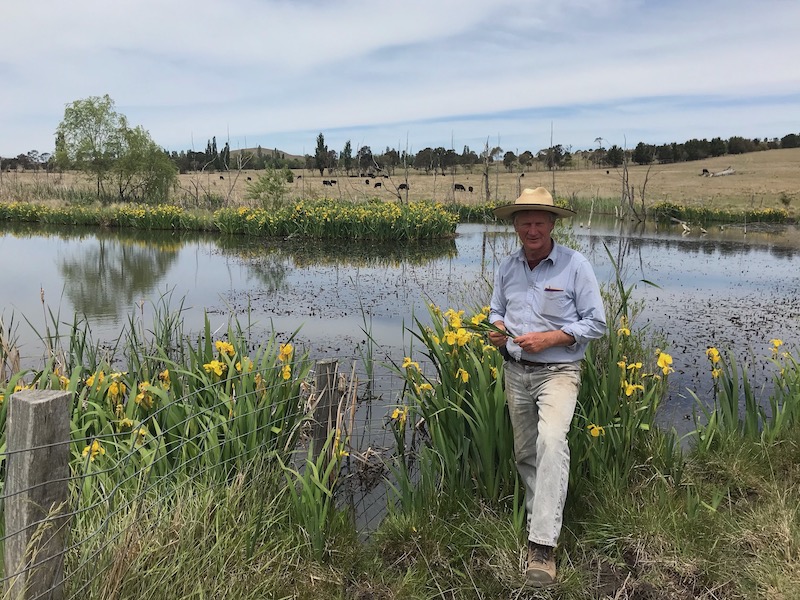
Braidwood farmer Martin Royds is one of the many speakers at a two-day conference on the future of food. Photo: Supplied.
Topics such as natural sequence farming and permaculture will be on the table during two-day conference, Food in the Capital, on 18-19 May, discussing the future of food in the region.
One of the many guest speakers and panelists is Braidwood farmer Martin Royds, who was one of the first people in the region to embrace natural sequence farming, which he says is a fancy term for encouraging the natural diversity of the land he farms.
His property, ‘Jillamatong’, has more than 80 different herbs and grasses, and he manages it by enriching the soil using compost and getting as much biodiversity into the landscape as possible.
“We harvest native grass seed, timber, yabbies, garlic and anything we think might enrich the biodiversity mix,” he says.
Martin has also been exploring seaweed as a feed supplement for his stock to further reduce methane emissions, while dung beetles help feed the soil.
Since implementing the changes at ‘Jillamatong’, Martin has extended his growing season by months and is now producing double the yield of surrounding farms.
He says there have been other surprising results.
“There is still water in our weirs and creeks, and areas of green during the drought, even when the Shoalhaven River was dry, which often leaves my neighbours confused,” says Martin.
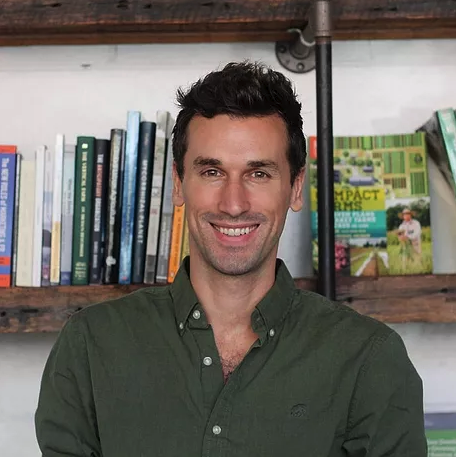
Keynote speaker at the Food in the Capital conference, Henry Gordon-Smith, will dial in from New York. Photo: Supplied.
A key speaker at the conference will be Henry Gordon-Smith, from New York, an expert in urban agriculture, water issues and emerging technologies, who will join the conference remotely to discuss how to launch urban agriculture projects.
Her research also focuses on the resilience of food systems in cities that face growing challenges from population growth, urban sprawl, climate change and water scarcity.
Dr Carey leads the Foodprint Melbourne research project, which is investigating ways to strengthen the resilience of Melbourne’s food system to shocks and stresses related to climate change and the COVID-19 pandemic.
Locally, Fiona Buining from Ainslie Urban Farm will speak on being a successful urban farmer supplying high-end restaurants with organic microgreens. She is also an educator, teaching young women the importance of gardening for mental and physical health.
Food in the Capital organiser Suzanne Gearing, from Regional Development Australia (RDA), said the COVID-19 pandemic has fueled the need for a dramatic change in our food system in Australia.
“Never has the food landscape been so full of challenges and possibilities,” she said. “Food in the Capital is your opportunity to be part of shaping our food future, both in the Canberra region and across the country.
“The RDA ACT’s Food in the Capital sustainable food conference program is a series of events connecting people from across the industry including farmers, food businesses and manufacturers, community groups, thought leaders and policymakers.”
The first day of the conference at Hotel Realm will explore urban and regional farming, logistics and social enterprises. The second day will give participants the opportunity to see food in action, with tours showcasing local producers in the Canberra region.
More information is available on the Food in the Capital website.












